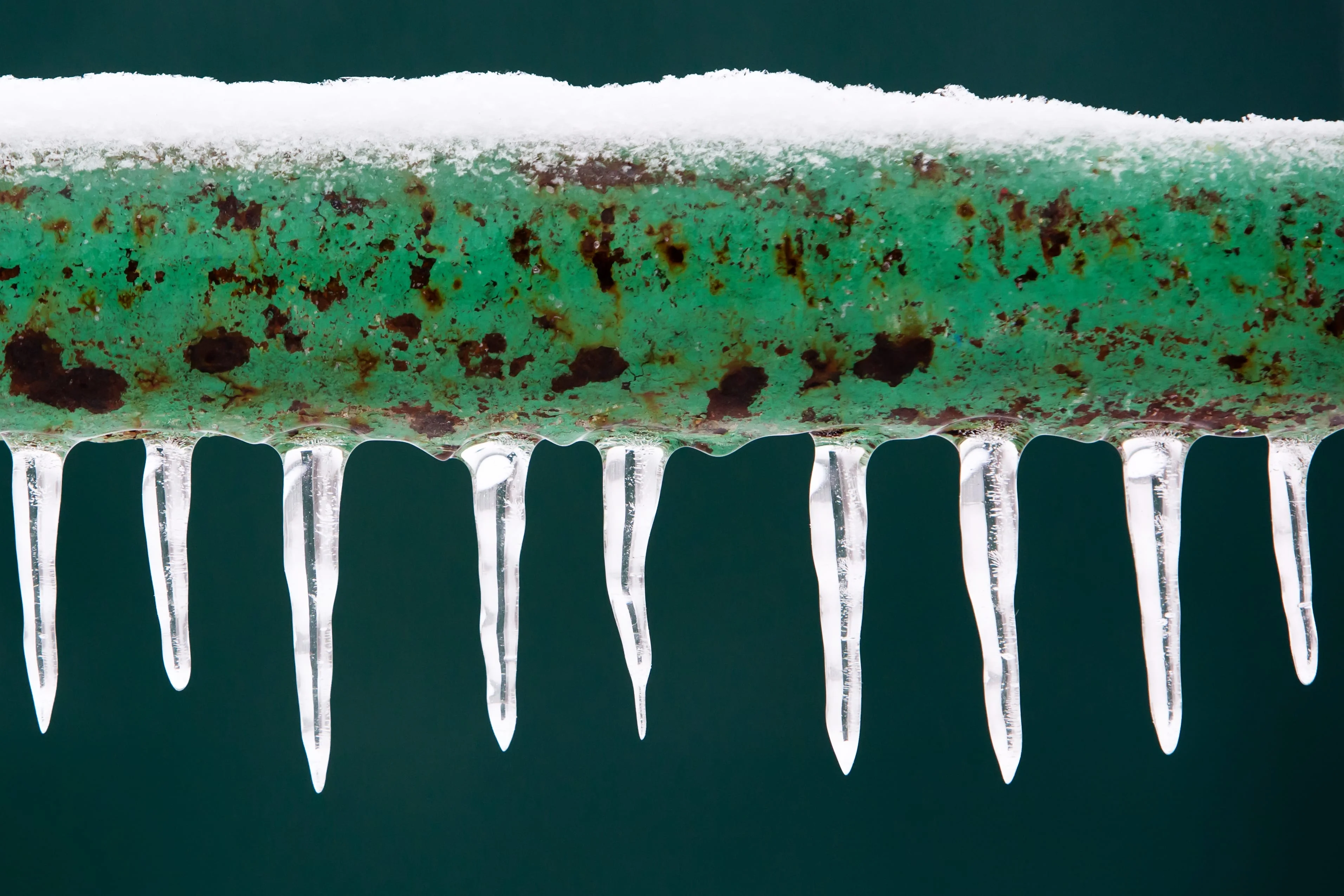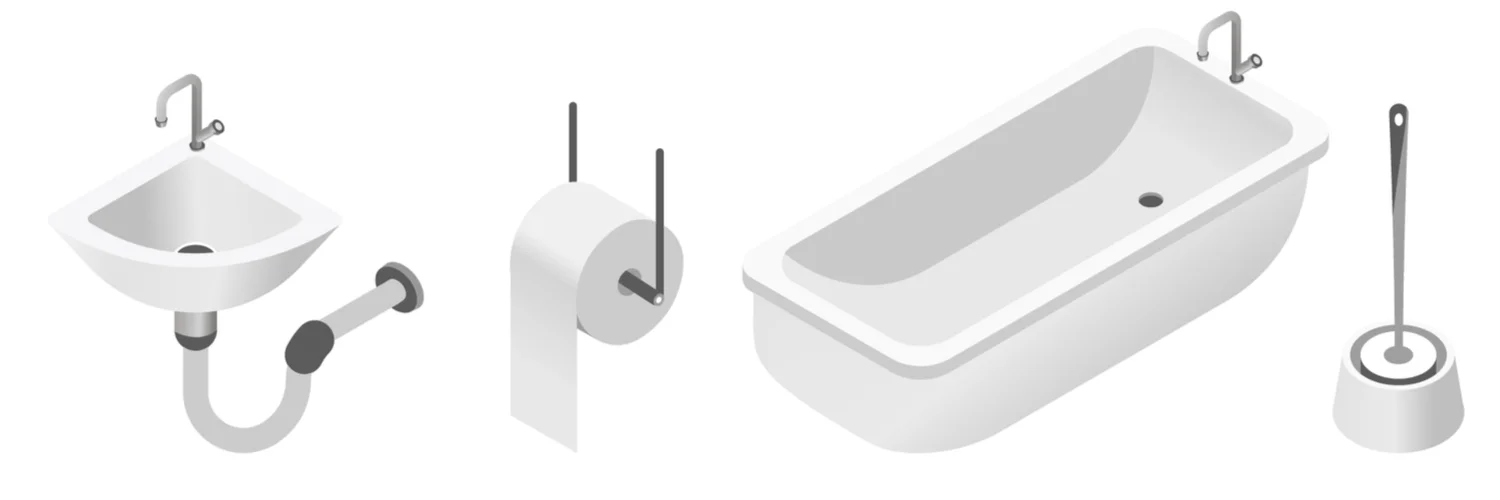2018 was a year of extreme weather. From the heatwave in the summer, to the 9 named storms that hit the UK throughout, to the Beast from the East at the start of the year we've seen a lot of adverse weather in 2018! It's the cold and ice that we want to focus on today, along with some help regarding pipes blocked with ice at your home or business.
Just because the weather is cold, doesn't mean you will definitely end up with frozen pipes and in fact there is no specific temperature to watch out for. We are taught in school that the freezing temperature of water is 0 degrees Celsius, though sometimes water can remain in its liquid form up to -48 degrees Celsius!
The pipes most at risk of freezing are outdoor pipes as well as pipes that run along externals walls, and those in areas of low heat, such as in garages and lofts. If you own a property that is empty for extended periods of time, pay special attention to the pipes as they can also be more at risk of frozen pipes. It's a good idea to check your outdoor pipes if you see frost and ice outside.
How to Prevent Frozen Pipes
Prevention is always better than cure, and the pipes in your residential or commercial property are no different. It can be time consuming to ensure that your pipes are snugly insulated, but it's much less disruptive that dealing with a sudden lack of water or worse; burst pipes and flooding! So how do you prevent frozen pipes? There are a few tried and tested options:
- insulate the pipes; lagging is available from all major DIY shops, for both indoor and outdoor pipes and taps and if you don't fancy braving the stores there are many online that will deliver to your door.
- keep the heating on running at a low temperature; it doesn't have to be very high, but even a little extra heat can make a difference to your pipes.
- open doors and cabinets periodically; even the hatch to your loft. It may feel a little draughty, but it always heat to circulate to those at risk pipes.
- turn on your taps; it need only be for a few seconds, every so often, but the more frequently taps are run hopefully the less liklihood that they will freeze.
- drain your water system; specifically for empty homes or businesses due to the fact that these properties will be without water for an extended period of time, but it is the most effective preventative measure to avoid frozen and burst pipes!
How to Spot Frozen Pipes
Despite your best efforts, the weather has plummeted into the minus figures and sadly your pipes have caught a chill! How do you identify where the problem is before it escalates?
- frost on the pipes; it seems an obvious one, but if you can see the pipe (such as an outdoor pipe or the u-bend under the sink) and you can see frost forming on the outside then chances are the inside is frozen or starting to freeze.
- no water; if no water is running out of the tap then there must be a cause of the blockage and in freezing conditions the culprit could by ice.
- strange smells; one of the jobs of the water level in the u-bend for example, is to prevent smells from coming up through the pipes. If that is frozen then any odours caused by blockages can escape.
How to Treat Frozen Pipes
With the diagnosis of frozen pipes comes the next step, which is how to tackle this problem. It could be that you decide to call a plumber or drainage technician to sort this for you or you could attempt to fix the problem yourself. Either way there are some steps that we would advise everyone take as soon as they know the pipes are frozen.
- turn off the water; we cannot stress enough how important this step is. This will prevent pipes from bursting and exacerbating the situation and it's something easily done. Locate your stopcock (it's probably under your kitchen sink) and turn it in a clockwise direction to shut off your water.
- turn off the water; yes, it's so vital that we're saying it twice! If for whatever reason it is impossible to turn off the internal stopcock then as a plan B it is possible to switch the water off at the external stopcock, though this is more complicated and can affect your neighbours as well. Watch this short video from Thames Water for more information.
- thaw the pipes; this is not always a simple matter, especially if the pipes are in hard to reach areas, but if accessible it is possible to do this. Gently does it, either wrapping hot soaked towels around the pipes or you can use a hair dryer on the lowest setting at a reasonable distance.
- avoid open flames; tempting though it might be to take a blow torch to the dratted frozen pipes, this is not recommended. You could damage the pipe or even cause the water to boil, which could burst the pipe right before you
- call the professionals; if a blockage has built up around the obstructive ice, you might end up with a second problem to your frozen pipes and so it might be best to err on the side of caution.
Worst Case Scenario: Burst Pipes
Sometimes the pipe will burst. It could be that the pipe was worn before being frozen, or it could have gone undetected for a long while. Whatever the situation, here are the steps to take for this eventuality.
- turn off the water; yes, we sound like a broken record, but if your pipe bursts and starts to flood the property then the first step is to turn that stopcock and stop that water!
- block off and/or mop up the flooding; reach for the thickest towels you have to try to plug the hole or mop up what's already escaped to reduce the water damage to your home.
- call the professionals; the time has definitely come for you to pick up the phone and call in the plumbing and drainage experts!
Now that Winter is here keep a good check on your pipes and hopefully they will serve you well during the colder months!
If you require the services of Metro Rod you can get in touch with us in a variety of ways;
You can go to our website
You can get us on Twitter or Facebook
You can call us on 01869 277702
or you can connect with our sales and marketing team on LinkedIn

Talk to your local Metro Rod specialist
We are always happy to arrange a free site assessment and no obligation quotations for any work you might need. Alternatively, you can call our emergency hotline number on 0800 66 88 00
Get in touch Drainage Services

